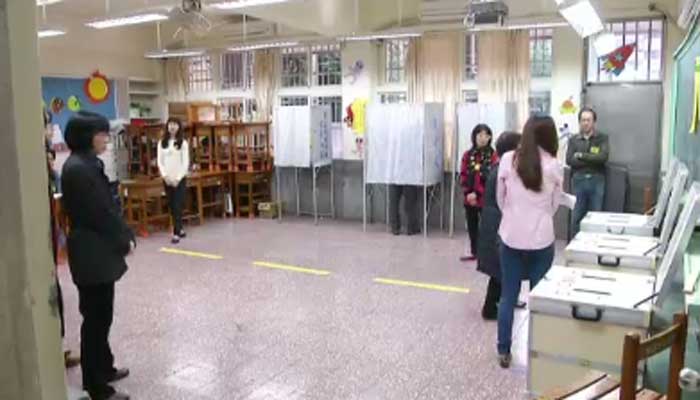-
Tips for becoming a good boxer - November 6, 2020
-
7 expert tips for making your hens night a memorable one - November 6, 2020
-
5 reasons to host your Christmas party on a cruise boat - November 6, 2020
-
What to do when you’re charged with a crime - November 6, 2020
-
Should you get one or multiple dogs? Here’s all you need to know - November 3, 2020
-
A Guide: How to Build Your Very Own Magic Mirror - February 14, 2019
-
Our Top Inspirational Baseball Stars - November 24, 2018
-
Five Tech Tools That Will Help You Turn Your Blog into a Business - November 24, 2018
-
How to Indulge on Vacation without Expanding Your Waist - November 9, 2018
-
5 Strategies for Businesses to Appeal to Today’s Increasingly Mobile-Crazed Customers - November 9, 2018
Taiwan welcomes first lady president
Taiwan’s electorate have elected Tsai Ing-wen, leader of the Democratic Progressive Party (DPP), as their new president ending eight years of the nationalist Kuomintang (KMT) party rule.
Advertisement
Ms Tsai, 59, leads the Democratic Progressive Party (DPP) that wants independence from China.
KMT candidate Eric Chu conceded defeat in a disastrous rout for the party, addressing tearful crowds at the party’s headquarters in Taipei.
Tsai will become the island’s first female president, taking over for President Ma Ying-jeou, who had served eight years and was constitutionally barred from serving another term.
At stake are relations with an ascendant and increasingly assertive China under President Xi Jinping. Observers say China is likely to adopt a wait-and-see approach to Tsai’s presidency, but might use diplomatic and economy pressure if she is seen as straying too far from its unification agenda.
Taiwan’s economy was also a focal point in the election debates.
Douglas Paal, former director of the American Institute in Taiwan, which represents USA interests in Taiwan in the absence of formal relations, said in a classified cable to Washington in 2006 that in addition to being extremely capable and persuasive, Tsai was “a tenacious negotiator”, according to classified documents revealed by the WikiLeaks website. Its export-dependent economy (40 percent of Taiwan’s exports go to China) slipped into recession in the third quarter past year and many are impressed by Tsai’s food and pension reforms, among others, that could improve the siutaition on the island. On her China policy: Tsai has been very ambiguous about her China policy. except that she will “maintain the status quo” and she will not “provoke China”. Voting began Saturday in Taiwan’s presidential election in which the… The previous highest vote was recorded by outgoing President Ma Ying-jeou, who received 58.4 per cent support in 2008. In a statement carried by state media earlier in the day, China’s Taiwan Affairs Office repeated it would not get involved in the election, saying only that it was “paying attention to across the Taiwan Strait”.
Taiwan, formerly known as Formosa, is an island off the southeast coast of China between the East and South China Seas.
Sixteen-year-old Chou Tzu-yu, who performs under the name Tzuyu, had apparently been compelled to apologize after her South Korean management company suspended her activities in China for fear of offending nationalist sentiments on the mainland.
“We’re not a part of China”.
The DPP has never recognized the consensus.
The KMT is at risk of losing its majority in the legislature for the first time in history.
Analysts also agree there will not be any immediate backlash from China, as alienating Taiwan would play against Beijing’s ultimate aim of reunification. Nationalist candidates have benefited in past from USA concerns over turbulence in the cross-strait relationship, although Washington has withheld endorsement of either candidate.
Advertisement
“Though she is an advocate of Taiwanese identity, she is seen as an idealist rather than an activist”, Wang said, adding the highly patient Tsai opts for communication in resolving problems.





























